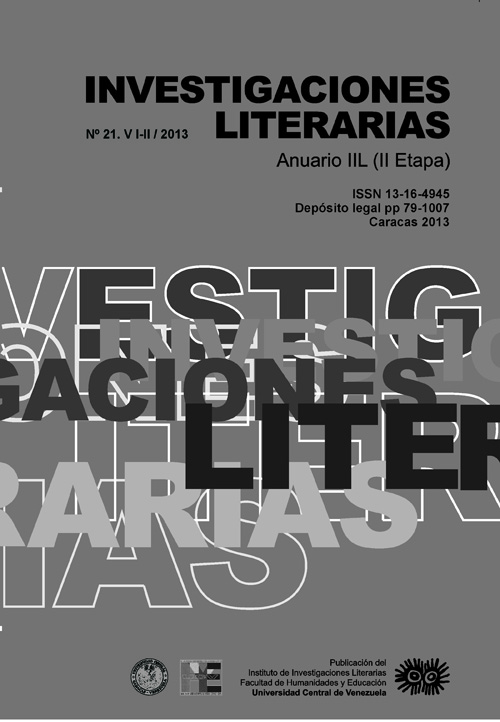ARQUEOLOGÍA DEL SUEÑO: JOSÉ ANTONIO RAMOS SUCRE Y LOS HIPNÓTICOS
Palabras clave:
poesía venezolana, drogas hipnóticas, intoxicación, estética, experiencia onírica, Venezuelan poetry, narcotic drugs, intoxication, aesthetics, oneiric experienceResumen
Críticos e investigadores han reseñado la costumbre de José Antonio Ramos Sucre de recurrir a drogas hipnóticas para combatir el insomnio que padecía. Sin embargo, entre sus lectores aún persiste la creencia generalizada de que estos sedantes no tuvieron mayores efectos en su organismo, una creencia que parece ajustada al sentido común, cuando consideramos que el móvil más difundido de su suicidio fue la imposibilidad de conciliar el sueño. El objetivo primordial de esta reflexión será plantear lecturas alternas: intentar imaginar cómo la máquina orgánica y estética del poeta pudo haber sido traspasada por el uso de estas sustancias. Para lograrlo, analizaremos diversos discursos y testimonios centrados en la circulación y consumo de estas sustancias; luego, procederemos a establecer vínculos entre los hipnóticos, su vida y su estética.
ABSTRACT
Critics and researchers have discussed José Antonio Ramos Sucre’s habit of recurring to narcotic drugs to combat the insomnia he suffered. However, among his readers there still persists the generalized belief that those sedatives did not have major effects on his organism, a belief that seems to reflect common sense, when we consider that the most frequently cited reason for his suicide was his chronic inability to sleep well. The primary objective of this reflection will be to suggest alternate readings: trying to imagine how the poet’s organic and aesthetic machine could have been afflicted by the use of these substances. In order to do this, we will analyze various discourses and testimonies centered around the circulation and consumption of those substances; then, we will proceed to establish links between the narcotics, his life and his aesthetics.

